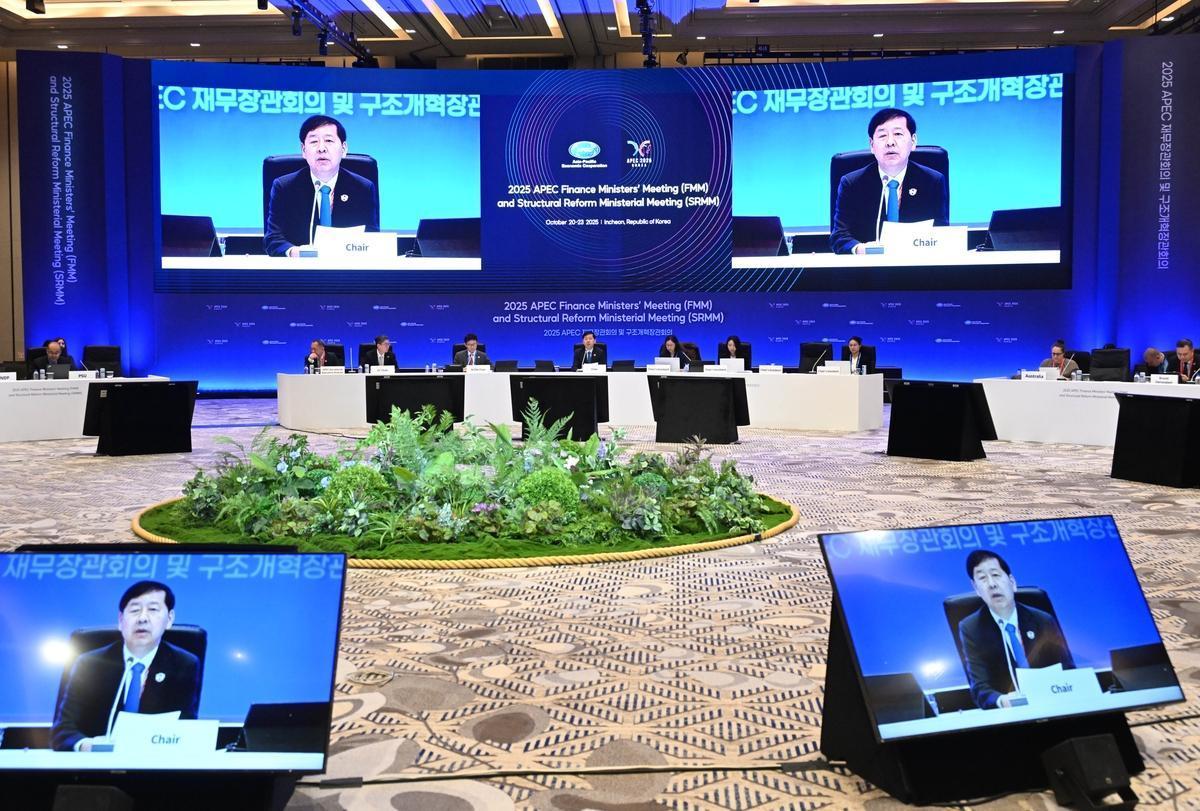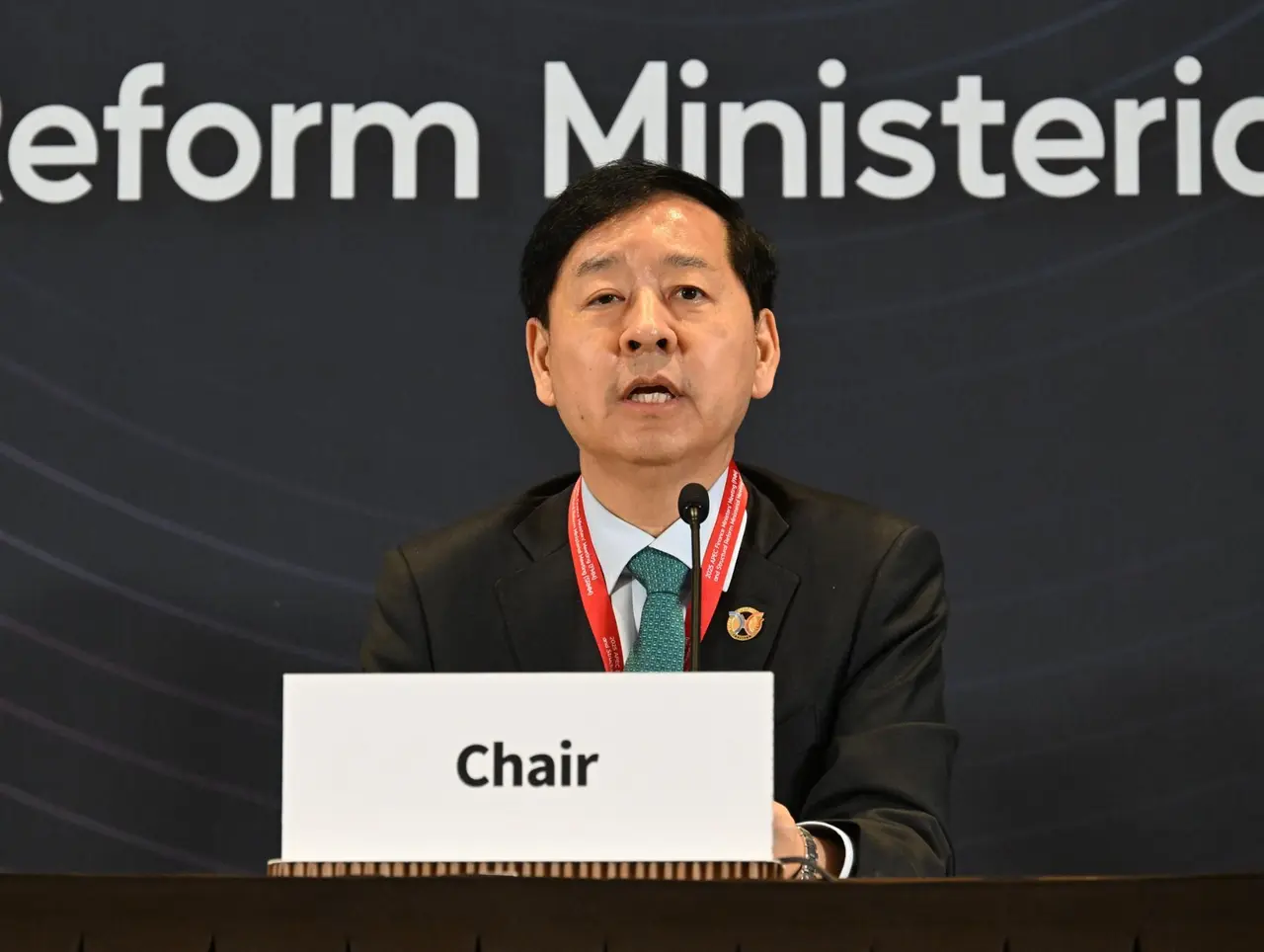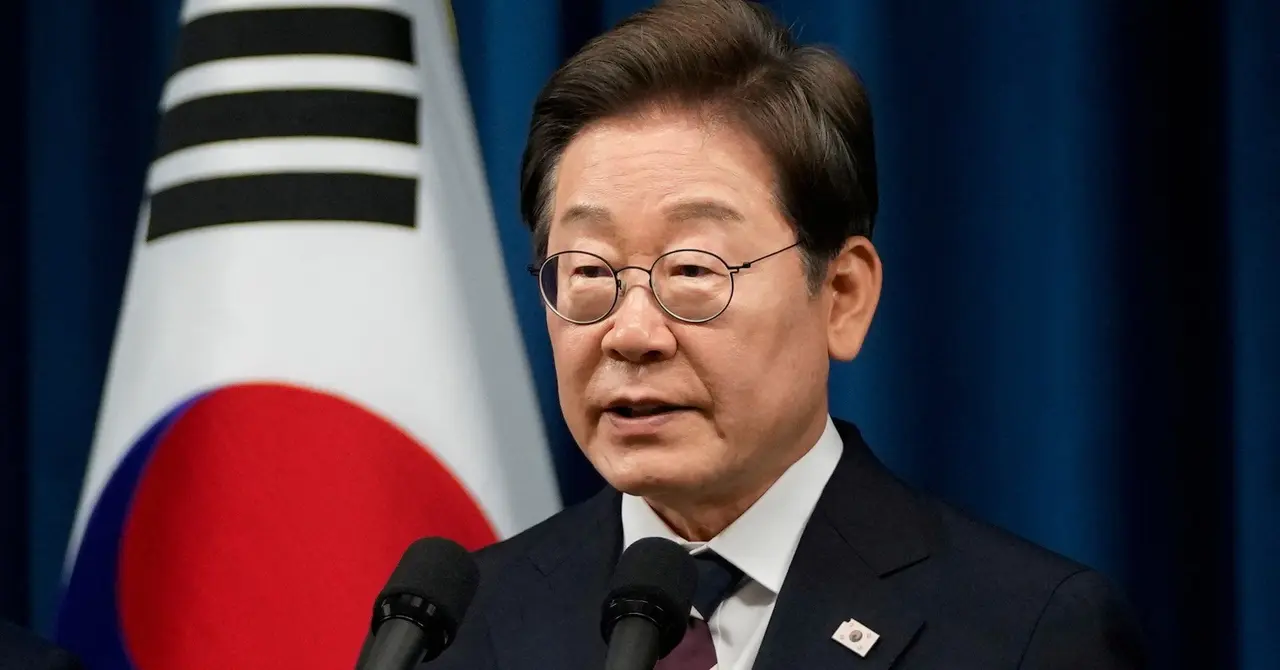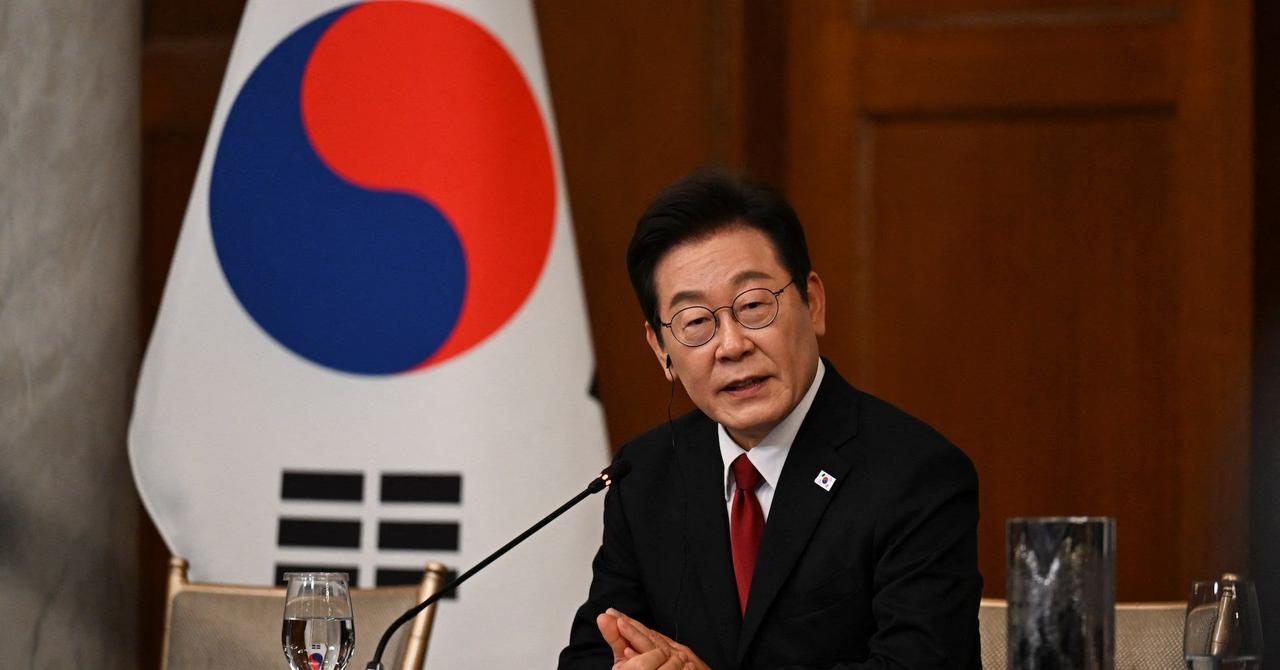APEC Finance Ministers Chart New Path for Cooperation in AI-Driven Global Economy
3 Sources
3 Sources
[1]
Korea charts new path for APEC cooperation amid AI-driven shifts in global economy - The Korea Times
Finance minister says Incheon gatherings' outcomes significant ahead of next week's Economic Leaders' Meeting Korea played a leading role in proposing a new path for cooperation within the Asia-Pacific Economic Cooperation (APEC) during this year's APEC Finance Ministers' Meeting, in response to artifical intelligence (AI)-driven changes reshaping the international economic order, Deputy Prime Minister and Minister of Economy and Finance Koo Yun-cheol said Thursday. Koo noted that this forward-looking approach was reflected in the adoption of the Incheon Plan, as well as in agreements reached during the APEC Structural Reform Ministers' Meeting. The outcomes precede the APEC Economic Leaders' Meeting, which will be held next week in Gyeongju, North Gyeongsang Province -- a summit expected to build on the discussions and policy directions established in Incheon. The Incheon Plan, a new five-year road map guiding shared financial policies among the 21 APEC member economies, was unanimously adopted at the APEC Finance Ministers' Meeting held in Incheon from Tuesday to Thursday. The meeting was held jointly with the APEC Structural Reform Ministers' Meeting, also in Incheon. "These meetings were meaningful," Koo said during the closing press conference at Inspire Entertainment Resort on Incheon's Yeongjong Island. He added that the gatherings "provided an opportunity for APEC members to discuss in detail how to work together for inclusive and sustainable growth in the age of AI." According to Koo, the Incheon Plan sets the midterm direction for APEC's financial cooperation around four pillars -- innovation, finance, fiscal policy, and access and opportunity across the region. In particular, as the host country, Korea "broadened the scope of APEC's financial discussions" by proposing AI-related themes for the first time within the APEC finance track. "In a time when global dynamics are changing rapidly due to shifting trade policies and competition in AI technologies, the adoption of the Incheon Plan reaffirmed the importance of regional cooperation and coordination," he said. Koo noted that each chair economy over the next five years, including China in 2026, will select specific topics from the Incheon Plan to focus their discussions on. Regarding the APEC Structural Reform Ministers' Meeting, Koo said that participants discussed the role and direction of regional structural reforms in response to complex transitions such as AI-driven digital innovation and demographic changes. He added that the joint statement and two annexes adopted at the Structural Reform Ministers' Meeting will help APEC economies promote structural reforms in a more organized and systematic way. "These cover key areas such as improving markets and business environments, supporting digital transformation and expanding economic participation to increase prosperity," he said. "This established a solid foundation for advancing structural reform policies across the region." Koo emphasized that these outcomes were achieved just ahead of the APEC Economic Leaders' Meeting in Gyeongju, making them "even more significant." "Korea will continue working to ensure that these outcomes lead to concrete results at the APEC Economic Leaders' Meeting," he said.
[2]
Korea's finance chief calls for AI-driven prosperity across APEC - The Korea Times
Korean Finance Minister Koo Yun-cheol on Wednesday outlined his vision to promote prosperity across Asia-Pacific Economic Cooperation (APEC) member economies through innovation centered on artificial intelligence (AI). Koo made the remarks during a joint session on the second day of the APEC Finance Ministers' Meeting, held in the western port city of Incheon. Finance ministers or minister-level officials from the 21 APEC member nations gathered here from Tuesday for the three-day conference under the theme of "Building a Sustainable Tomorrow," ahead of the official APEC Summit. "Through today's joint session, I look forward to exchanging views on policy directions and exploring APEC's cooperative pathways for AI and digital transformation," Koo said. "Together, we can harness AI innovation to drive prosperity across APEC." Wednesday's session was part of the APEC Structural Reform Ministerial Meeting, which was jointly held with the finance ministers' meeting for the first time. Koo expressed optimism that next year's APEC Economic Policy Report will offer concrete directions for cooperation aimed at building a secure AI ecosystem and narrowing the digital divide. The report is the APEC economic committee's flagship annual publication, analyzing structural reforms across APEC economies. The 2026 edition is titled "Structural Reform and AI-Driven Digital Transformation." He further outlined his belief that AI is the only breakthrough for the Korean economy, saying that Seoul "is pursuing a comprehensive AI transformation across the private sector, the public sector and all citizens." The plan is part of the Lee Jae Myung administration's five-year economic development blueprint, unveiled earlier this year, which emphasizes integrating AI across the private and public sectors to build what it describes as a "super-innovation economy." "According to a recent domestic study, AI adoption could increase Korea's productivity by 1.1 to 3.2 percent and its GDP by 4.2 to 12.6 percent, which could help significantly offset the impact of demographic headwinds on economic growth," Koo said. This week's meeting is the final ministerial session before the APEC summit scheduled for Oct. 31 to Nov. 1 in Gyeongju in the country's southeast.
[3]
APEC Finance Ministers Confront Fiscal Pressures And Digital Shifts In Incheon
Incheon, Republic of Korea, 21 October 2025 Issued by the APEC Finance Ministers' Meeting APEC finance ministers are gathered in Incheon, Republic of Korea, to shape coordinated responses to fiscal challenges and digital transformation, focusing on the global economic outlook, sustainable public finances and innovation in financial systems. Opening the APEC Finance Ministers' Meeting, Dr Yun Cheol Koo, Deputy Prime Minister and Minister of Economy and Finance of the Republic of Korea, called for forward-looking coordination as economies navigate heightened policy uncertainties. "Today, policy uncertainty including in trade, elevated debt levels, demographic and climate changes continues to weigh on the Asia Pacific region," said Dr Koo. "In this turbulent environment, APEC's founding vision of cooperation and mutual trust remains as important as ever. By standing together in solidarity and cooperation, we can continue to overcome every challenge and crisis." The meeting also brings together representatives from the International Monetary Fund, Asian Development Bank, Organisation for Economic Co-operation and Development, and Inter-American Development Bank, with the World Bank participating as a Finance Ministers' Process partner, and the Development Bank of Latin America and the Carribean and the United Nations Development Programme attending as guests. Over the course of the day, ministers discuss the global and regional economic outlook, the role of AI-driven digital finance in broadening financial access, and how fiscal systems can adapt to demographic change and long-term sustainability pressures. Dr Koo outlined the meeting's theme of "Innovation, Finance and Fiscal Policy for Sustainable Growth," and emphasized that the region's finance leaders must take the lead in steering economies through rapid digital transformation. "We are living in the middle of AI era," he said. "Artificial intelligence is reshaping not only our technologies but also our economies and societies, as well as the way we live and work. Much like the industrial revolution in the past, this is no longer a matter of choice, but an inevitable reality we must all confront and prepare for." Dr Koo stressed the need for responsible financial innovation and inclusive access, underscoring that AI-driven digital finance has enable alternative credit assessments for small businesses and help tackle challenges such as fraud and scams. "Our task is to foster innovation while building a responsible financial ecosystem that balances opportunities with risks and ensures access for vulnerable groups and remote communities." On fiscal policy, Dr Koo stressed the need for fiscal authorities to respond to structural societal changes. "Beyond our traditional roles in defense, welfare, and education, we must also respond to aging populations and climate change. To secure the engines of future growth, we must channel resources into critical areas such as AI transformation so that our economies can continue to expand sustainably," he added. "At the same time, we must strengthen the sustainability of public finances through restructuring expenditures and reforming tax systems." "The future is not something to wait for, it is something we should create together. When we, coming from diverse circumstances, stay connected and united in the face of our shared challenges, the Asia-Pacific region can achieve resilient prosperity," Dr Koo concluded. Finance ministers will join with their counterparts from the Structural Reform Ministerial Meeting for a joint session on innovation and digitalization on Wednesday. The dialogue will explore how APEC economies can harness digital technologies to boost productivity, strengthen regulatory coherence and ensure that the benefits of digital transformation are broadly shared.
Share
Share
Copy Link
APEC finance ministers gather in Incheon, South Korea, to address fiscal challenges and digital transformation. The meetings focus on AI-driven innovation and sustainable growth, setting the stage for the upcoming APEC Economic Leaders' Meeting.
APEC Finance Ministers' Meeting in Incheon
The Asia-Pacific Economic Cooperation (APEC) Finance Ministers' Meeting, held in Incheon, South Korea, from October 21-23, 2025, has set a new course for regional cooperation in response to the rapidly changing global economic landscape driven by artificial intelligence (AI)
1
. The gathering, which brought together finance ministers from 21 APEC member economies, focused on addressing fiscal challenges and digital transformation in the face of AI-driven shifts3
.
Source: Korea Times
The Incheon Plan: A New Roadmap for APEC
A significant outcome of the meeting was the unanimous adoption of the Incheon Plan, a five-year roadmap guiding shared financial policies among APEC members
1
. The plan focuses on four key pillars: innovation, finance, fiscal policy, and access and opportunity across the region. As the host country, Korea played a pivotal role in broadening the scope of APEC's financial discussions by introducing AI-related themes for the first time within the APEC finance track1
.AI-Driven Prosperity and Digital Transformation
Korean Finance Minister Koo Yun-cheol emphasized the potential of AI to drive prosperity across APEC economies
2
. He highlighted Korea's comprehensive AI transformation plan across private and public sectors, citing a domestic study that projected AI adoption could increase Korea's productivity by 1.1 to 3.2 percent and its GDP by 4.2 to 12.6 percent2
.Addressing Fiscal Challenges and Sustainable Growth
The meeting also focused on confronting fiscal pressures and ensuring sustainable public finances in the face of demographic changes and long-term sustainability challenges
3
. Ministers discussed the need for fiscal authorities to respond to structural societal changes, including aging populations and climate change, while also channeling resources into critical areas such as AI transformation3
.Related Stories
Joint Session on Innovation and Digitalization
A unique aspect of this year's meeting was the joint session between finance ministers and their counterparts from the Structural Reform Ministerial Meeting
1
. This session explored how APEC economies can harness digital technologies to boost productivity, strengthen regulatory coherence, and ensure that the benefits of digital transformation are broadly shared3
.
Source: Korea Times
Looking Ahead: APEC Economic Leaders' Meeting
The outcomes of the Finance Ministers' Meeting and the Structural Reform Ministers' Meeting are expected to set the stage for the upcoming APEC Economic Leaders' Meeting, scheduled for October 31 to November 1, 2025, in Gyeongju, South Korea
2
. These gatherings have established a solid foundation for advancing structural reform policies and financial cooperation across the region, with a strong focus on AI-driven innovation and sustainable growth1
.References
Summarized by
Navi
[1]
Related Stories
South Korea Announces Massive AI Investment Push with $7 Billion Budget Increase
04 Nov 2025•Policy and Regulation

South Korea Prioritizes AI Investment to Boost Economic Growth Amid Challenges
22 Aug 2025•Technology

South Korea Unveils Ambitious Budget Plan to Boost AI-Led Economic Growth
30 Aug 2025•Business and Economy

Recent Highlights
1
Pentagon threatens Anthropic with Defense Production Act over AI military use restrictions
Policy and Regulation

2
Google Gemini 3.1 Pro doubles reasoning score, beats rivals in key AI benchmarks
Technology

3
Anthropic accuses Chinese AI labs of stealing Claude through 24,000 fake accounts
Policy and Regulation





